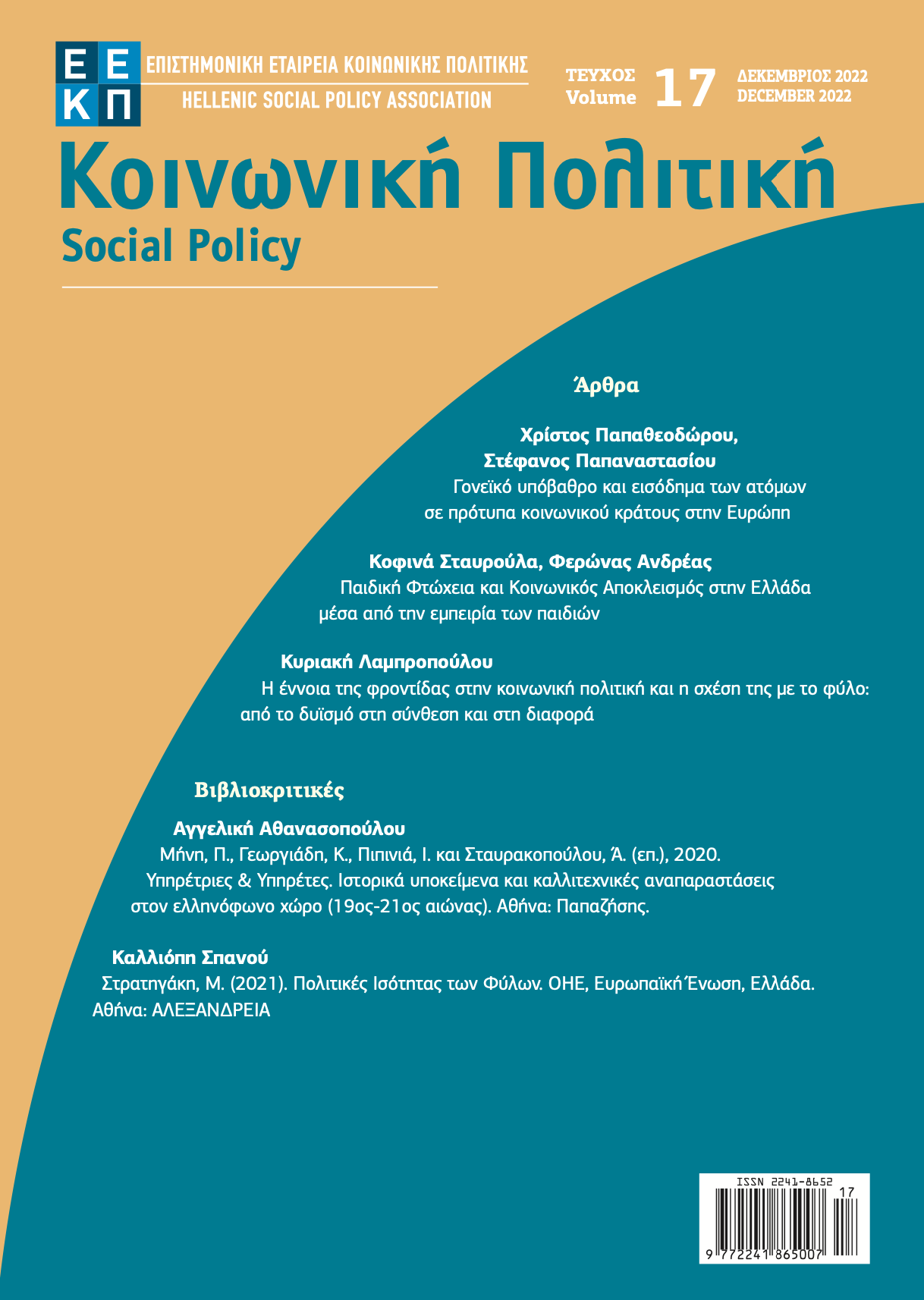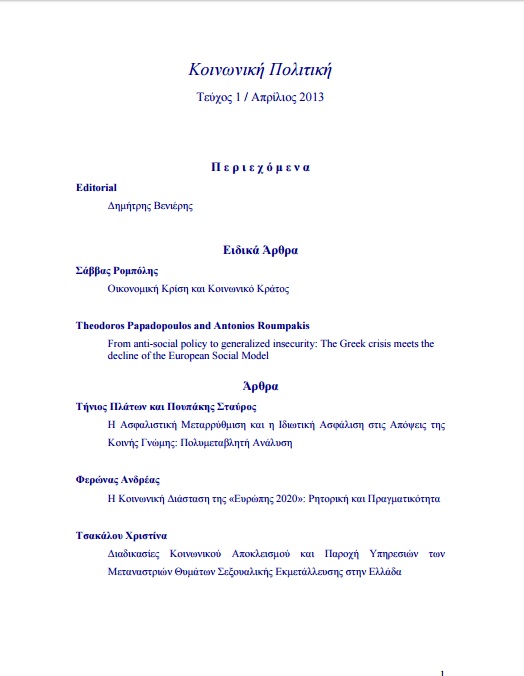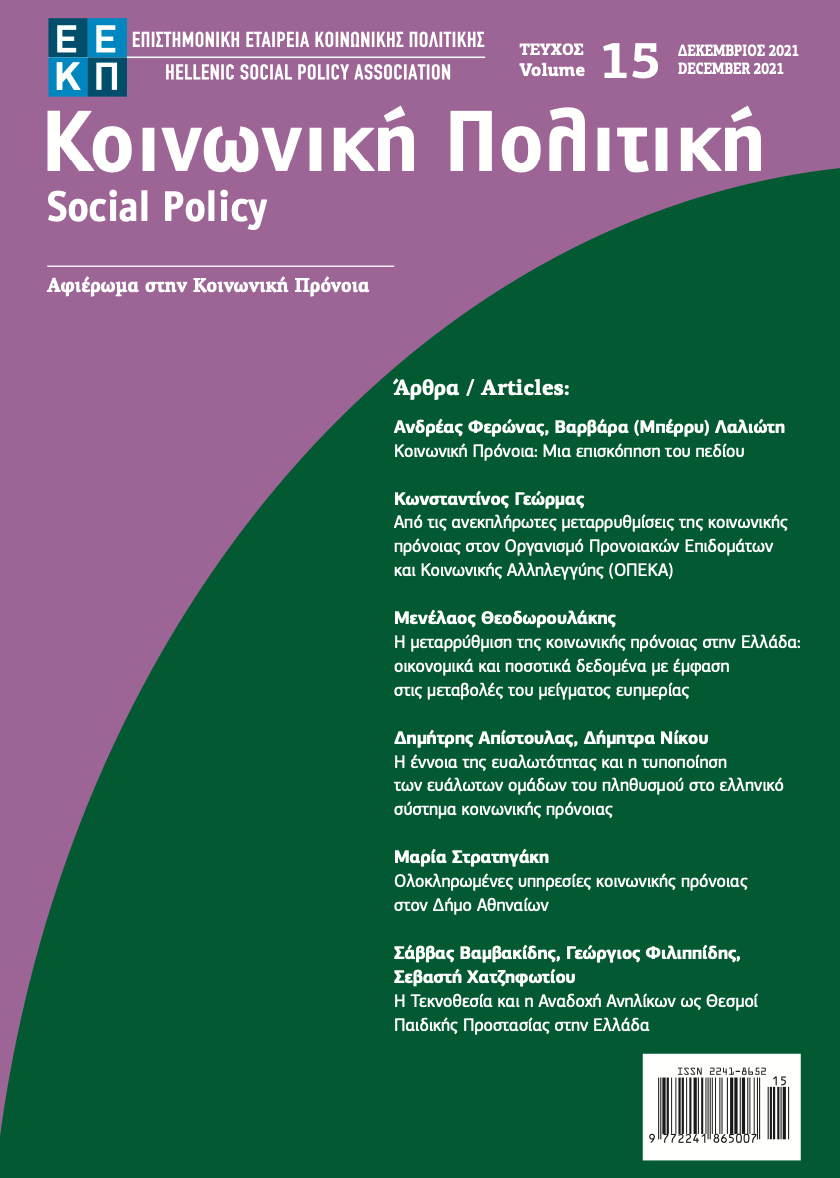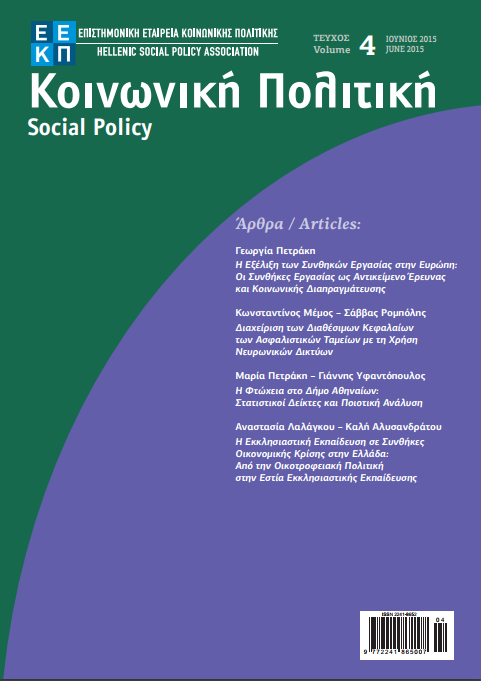Οι Επιπτώσεις της Οικονομικής Κρίσης στην Αγορά Εργασίας των Χωρών υπό το Καθεστώς Δημοσιονομικής Προσαρμογής: Μια Συγκριτική Ανάλυση
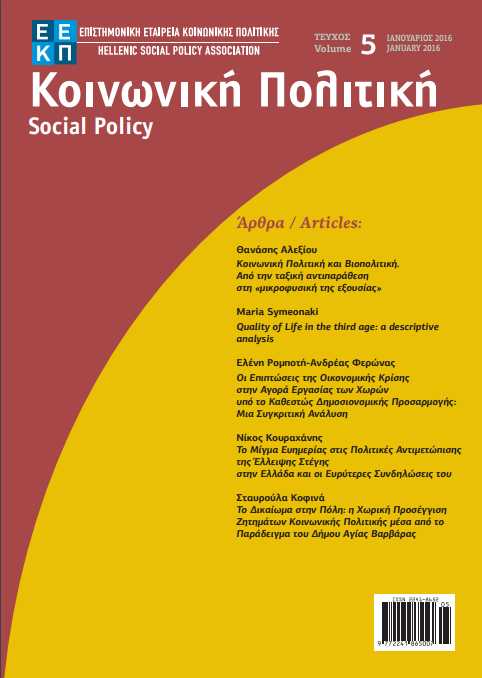
Abstract
The aim of this article is a comparative analysis of the impact of the financial crisis on the labour market in the so called Memorandum countries (Greece, Portugal, Ireland and Cyprus). This will be sought through the examination of the reforms that have been imposed on structural components of the labour market in these countries in the course of the economic crisis and under bailout agreements with the Troika (EU, ECB, and IMF). The comparative analysis suggests that the measures imposed, in the name of competitiveness and flexibility in the labour market, have contributed to the deregulation of labour relations. The dismantling of the wage determination system, the weakening of the social protection system for the unemployed, the fading of the institution of full-time and stable employment to the benefit of flexible employment forms, the deregulation of employment protection legislation and the decentralization of collective bargaining have all served as the main tools of these interventions.
Article Details
- How to Cite
-
Ρομποτή Ε., & Φερώνας Α. (2017). Οι Επιπτώσεις της Οικονομικής Κρίσης στην Αγορά Εργασίας των Χωρών υπό το Καθεστώς Δημοσιονομικής Προσαρμογής: Μια Συγκριτική Ανάλυση. Social Policy, 5, 38–63. https://doi.org/10.12681/sp.10600
- Issue
- Vol. 5 (2015)
- Section
- Articles

This work is licensed under a Creative Commons Attribution 4.0 International License.
Authors who publish with this journal agree to the following terms:
Authors retain copyright and grant the journal right of first publication with the work simultaneously licensed under a Creative Commons Attribution Non-Commercial License that allows others to share the work with an acknowledgement of the work's authorship and initial publication in this journal.
Authors are able to enter into separate, additional contractual arrangements for the non-exclusive distribution of the journal's published version of the work (e.g. post it to an institutional repository or publish it in a book), with an acknowledgement of its initial publication in this journal.
Authors are permitted and encouraged to post their work online (preferably in institutional repositories or on their website) prior to and during the submission process, as it can lead to productive exchanges, as well as earlier and greater citation of published work.



